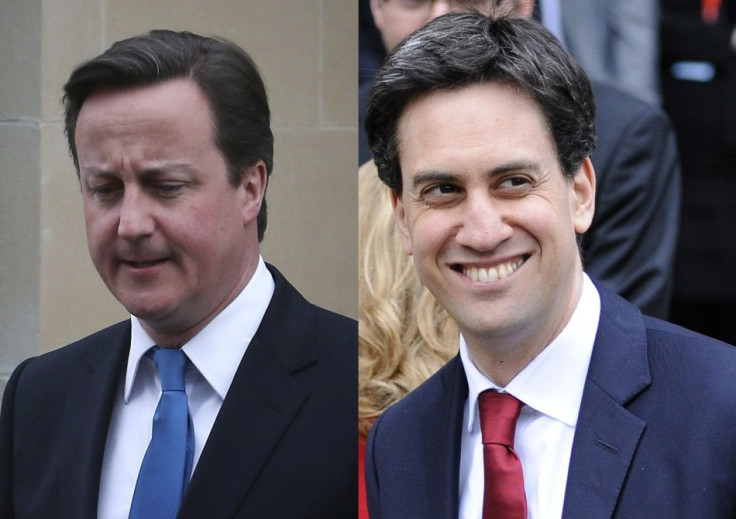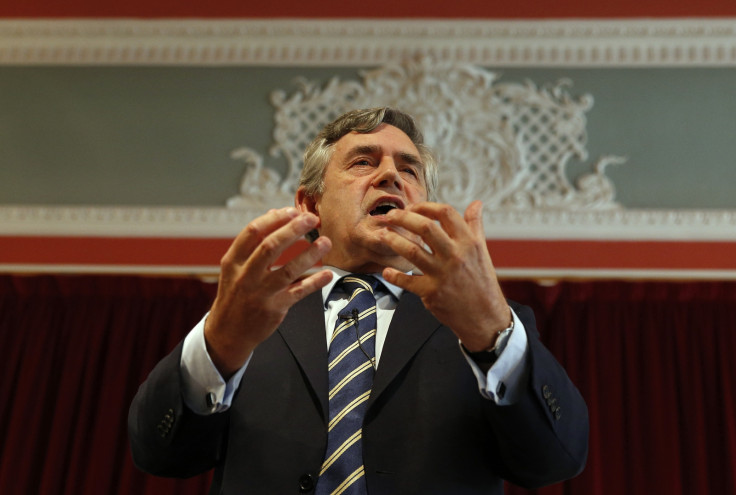Political Leaders Hit Panic Button and Head to Scotland to Stop Salmond Bandwagon

It has taken just two opinion polls to kick Westminster's political leaders out of their apparently complacent stupor and pitch them into a full-scale, headless-chicken, "do something" panic at the prospect of the looming death of the United Kingdom.
In an extraordinary twist, David Cameron, Ed Miliband, and Nick Clegg have cancelled the weekly prime minister's question time in the Commons so they can race to Scotland in an 11th hour bid to avert a constitutional eruption that would threaten to engulf them all.
They will not appear on the same platform and will be careful which groups of voters they address, but such a show of cross-party unity is not only verging on the historic, it is the clearest possible sign they have woken up to the fact their former cosy assumption Scotland would vote "no" has evaporated.
They insist it is not panic but a response to the demands for a more passionate, positive and engaged campaign. But don't believe them.
The truth is evidenced by the fact this is a last-minute, cobbled-together tactic and that their personal interventions could very easily backfire if it appears they are acting out of desperation, or are seen as Westminster again trying to impose itself on Scotland.
Cameron, in particular, is a hugely negative figure in Scotland and had been expected to stay away for fear of turning more voters into the independence camp.

Miliband had been relying on former prime minister Gordon Brown, a big figure in Scotland, to takeover the Better Together campaign which has, to all intents and purposes, now become a wholly owned subsidiary of the Labour party.
So this latest development means the leaders are sending out the clearest message that they no longer think they have anything left to lose and are ready to try anything.
In fact, the announcement came as the Westminster parties finally appeared to accept that only Labour could defeat Salmond and agreed Brown should be pushed to the head of the campaign with both Cameron's and Miliband's futures, let alone Scotland's, in his hands.
Both will be under threat if Salmond is victorious: Cameron for losing the Union and Miliband for losing the possibility of winning a majority in 2015.
While Cameron and the Tories are toxic in Scotland and all Westminster figures are viewed negatively, Brown is seen as the big Scottish beast who can reach out to the electorate, particularly the old Labour voters turning to independence and the large number of "don't knows".
His plans for a timetable to introduce what amounts to a Devo Max or best-of-both-worlds policy - with more tax, spend and welfare policies devolved to Scotland - have been backed by all three parties and are viewed as the big pledge that could sway the undecided.
So if the "yes" campaign is stopped, it will most likely be as a result of Brown's interventions rather than either Miliband's and certainly not Cameron's personal appearances.
It will be Brown to thank for heading off the possible challenge to Miliband's leadership and boosting Labour's chances of winning the 2015 general election.
And the great irony is that such a victory will also lift the immediate threat to Cameron's position.
Any hope Cameron might have harboured about winning an electoral bounce from a "no" vote is unlikely to happen, however, while Miliband may well benefit.
But the immediate challenge for the three Westminster leaders now, having taken their unprecedented decision, is to campaign in Scotland without making independence more, rather than less likely.
That is a decidedly risky business, particularly for the Tory prime minister who encapsulates everything the majority of Scots oppose.
It also means that all usual political business is on hold as the leaders attempt to head off the greatest constitutional challenge to the UK for centuries. And if that smacks of panic, that is probably because it is.
© Copyright IBTimes 2025. All rights reserved.






















